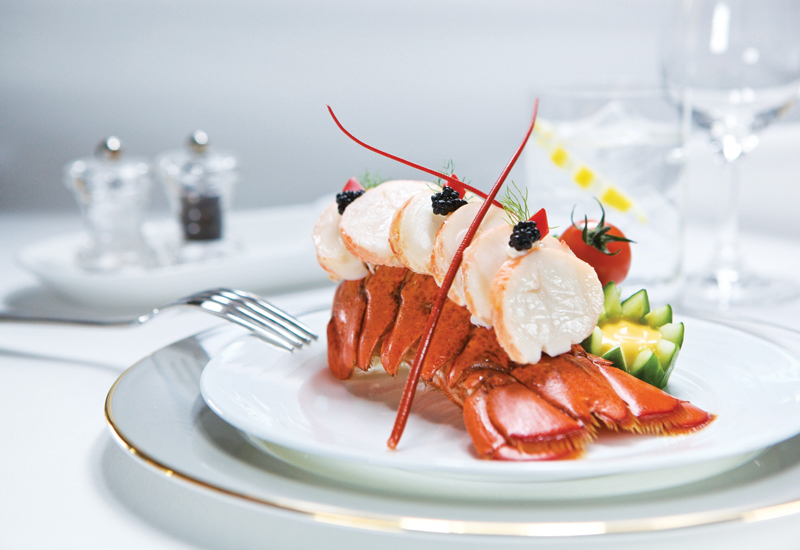To infinity and beyond
But it’s not just the physical space that’s limiting when it comes to cooking in the clouds. According to BA, your ability to taste can be reduced by up to 30% at altitude.
And the temperature that water boils at reduces by 2˚F for every 1,000ft you climb, so in an aeroplane that’s pressurized to 8,000ft, water boils at 196˚F (91˚C), which explains why it never seems as hot as when you make it yourself.
The main factor affecting food quality is the ovens, as Kimmeringer explains: “There are steam ovens now, they’re not quicker than conventional ovens but they’re much more gentle, so the crew can choose whether to cook a part of a meal with steam, or with dry heat.

| Advertisement |
Some airlines still have to put the whole meal in together on one foil, and when the steak’s ready, all the vegetables are overcooked.
“There’s a new piece of equipment available that we’re looking at too – induction heating. It will need investment, and we might have to do it, but it’s a plan for the future.
At Etihad we are constantly pushing to achieve a much closer product to what you get served in restaurants. In-house we have developed a hot water drawer which keeps water very hot for a long period of time, and it’s helped cut down on wastage as you only have to make a hot drink when it’s actually ordered by the customer. Etihad is working with companies developing technologies to get an edge over others and to try and improve standards and cut wastage costs.
Taste the difference
BA has studied the science behind food at altitude using the ‘Taste of London’ event in June to create the ultimate in-flight dish.
This effort built on the success of the UK-based television programme, ‘Heston’s Mission Impossible,’ which aired earlier this year, in which British Airways challenged celebrity chef Heston Blumenthal to create the ultimate in-flight dish.
One of Blumenthal’s recommendations to British Airways was to use ingredients in its dishes which are high in umami, a savoury flavour known as the ‘fifth taste’, which occurs naturally in foods such as seaweed, tomatoes, mackerel and parmesan cheese.
Paolo De Renzis, British Airways’ regional commercial manager Middle East, said: “‘Height Cuisine’ is all about sharing some of the science behind food at altitude and is part of the process of innovative new ideas British Airways is exploring.
“There are several factors like cabin pressure, and environmental stressors like reduced oxygen levels, atmospheric pressure changes, low humidity, noise and vibration, aircraft motion, cabin air conditioning and time zones, that have an impact on the palate.”
Article continues on next page...









 Search our database of more than 2,700 industry companies
Search our database of more than 2,700 industry companies









